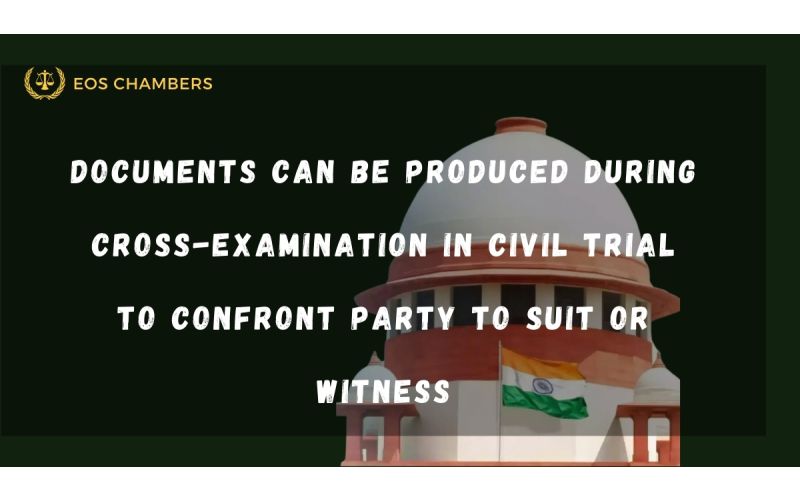An Exegesis On Criminal Offences: A Legal Discourse From The

An Exegesis On Criminal Offences: A Legal Discourse From The Pinnacle Of The Indian Judiciary
Index:
Introduction
Understanding Criminal Offences
2.1 Petty Offences
2.2 Cognizable Offences
2.3 Non-Cognizable Offences
Consequences of Criminal Offences
3.1 Legal Consequences
3.2 Social and Personal Impact
3.3 Societal Costs
Conclusion
————————————
- Introduction:
Criminal offenses encapsulate acts that transgress established laws and regulations, warranting punitive measures imposed by the Indian legal system. The repercussions of criminal conduct are profound, impacting individuals, communities, and the societal fabric. This exposition aims to provide a comprehensive overview of criminal offenses, their classification, and the potential consequences as per the Indian judicial framework.
- Understanding Criminal Offences:
Criminal offences encompass a broad spectrum of illicit activities, ranging from minor infractions to grave felonies. They are primarily classified into three key categories as per the Indian legal milieu: petty offences, cognizable offen es, and non-cognizable offenses.
2.1 Petty Offences:
Petty offences refer to minor transgressions that are typically punishable by nominal fines or community service. Examples include traffic violations, littering, or public disturbances. While relatively less severe, these offences attract penalties and may result in the accrual of demerit points on a driver’s record or other associated consequences. The objective behind penalizing petty offences is to ensure public order and maintain discipline.
2.2 Cognizable Offences:
Cognizable offences represent more serious transgressions, necessitating immediate police intervention, and investigation without a warrant. They entail grave criminal acts such as theft, assault, or drug abuse. Cognizable offences carry substantial penalties, including imprisonment, fines, or both, as prescribed by the relevant provisions of the Indian Penal Code (IPC). These offences pose a significant threat to public safety, and prompt action by law enforcement agencies is crucial for maintaining law and order.
2.3 Non-Cognizable Offences:
Non-cognizable offences are less serious in nature, requiring a formal complaint to initiate the investigation process. These offences encompass actions like defamation, forgery, or breach of trust. Punishments for non-cognizable offences include fines or imprisonment, as prescribed by the IPC or other relevant statutes. Non-cognizable offences primarily involve private disputes, and the initiation of legal action is dependent on the aggrieved party’s complaint.
- Consequences of Criminal Offences:
The consequences of criminal offences extend beyond the immediate penalties imposed by the Indian legal system, exerting lasting effects on individuals, families, and the wider society.
3.1 Legal Consequences:
Criminal offences carry significant legal ramifications. Convictions may result in custodial sentences, probation, mandatory counseling, or restitution orders. The severity of the punishment depends on the nature and gravity of the offence. Additionally, individuals with criminal records may face hurdles in securing employment, obtaining bail, or availing themselves of certain governmental benefits. Legal consequences not only serve as a deterrent to potential offenders but also seek to rehabilitate and reintegrate offenders into society.
3.2 Social and Personal Impact:
Criminal offences bear a pronounced social stigma, impeding personal relationships and societal integration. The erosion of trust, reputation, and social standing necessitates arduous efforts at rehabilitation. Furthermore, individuals engaged in criminal conduct often experience adverse psychological and emotional consequences, including guilt, shame, and ostracization. Rebuilding one’s life after committing a criminal offence requires not only legal assistance but also support from family, friends, and social welfare organizations to facilitate the reintegration process.
3.3 Societal Costs:
Criminal offences impose substantial financial burdens on society. These encompass expenses related to law enforcement, judicial proceedings, incarceration, and rehabilitation programs. Moreover, communities afflicted by crime may endure economic downturns, diminished property values, and a deteriorating quality of life. The cost of crime prevention, victim support services, and the maintenance of correctional facilities weighs heavily on the state’s resources. Addressing the societal costs of criminal offences necessitates a multifaceted approach involving investment in education, employment opportunities, and community development to prevent crime and promote social well-being.
Conclusion:
Criminal offences span a wide array of illicit activities, contravening established laws within the Indian judicial framework. From petty offences to grave felonies, these transgressions exert far-reaching consequences for individuals and society at large. Familiarity with the diverse offence classifications and their attendant ramifications assumes paramount importance in upholding the tenets of justice. By fostering awareness, implementing preventive measures, and embracing rehabilitation, we can strive towards a safer and more harmonious society. The collective efforts of the legal system, community organizations, and individuals play a pivotal role in curbing criminal conduct and promoting the rule of law.
Post Categories
Featured Posts
Latest Posts
Latest Posts

CJI DY Chandrachud Cautions About Artificial Intelligence Says It Can Make Biased Decisions Based...
Chief Justice of India D Y Chandrachudrecently spoke on how no technology is neutral and how it can reflect human values when deployed in the real world The CJI spoke on how one must ponder the human and societal values...

Anti-Money Laundering AML Compliance Best Practices for Law Firms...
In today's globalized economy money laundering poses a significant threat to financial systems and institutions including law firms As facilitators of various financial transactions law firms are often targeted by money launderers seeking to legitimize illicit funds Anti-Money Laundering AML...

Won t interfere with firecracker ban in Delhi SC...
Ahead of the festive season the Supreme Court on Wednesday said that it would not interfere with a decision of a state government if it decides to impose a complete ban on firecrackers including green crackers to check pollution level...

How Mediation Works Step-by-Step Process for Businesses...
nbsp is no longer just an option mdash it rsquo s becoming the preferred method for Indian businesses to resolve disputes quickly and professionally From vendor conflicts and payment delays to joint venture disagreements mediation offers a structured confidential and...

Documents Can Be Produced During Cross-Examination In Civil Trial To Confront Party To Suit...
In a notable judgment the Supreme Court has held that a document can produced during cross-examination in a civil trial to confront a party to the suit or a witness The Court also held that there is no distinction between...

Speak With Our
Get a Appointment

















